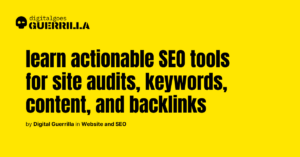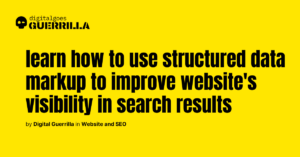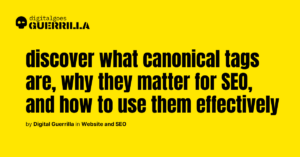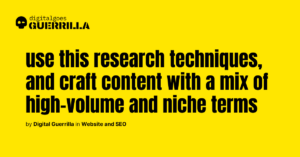In the digital world, ranking high on search engines is not just desirable—it’s essential. Yet, many businesses struggle to understand the intricate balance between on-page SEO and off-page SEO, often focusing on one while neglecting the other. This imbalance can lead to wasted efforts, missed opportunities, and stagnant online growth.
This article demystifies the significance of both on-page and off-page SEO, exploring how they work together to elevate your website’s visibility, authority, and engagement. If you’ve been wondering how to strike the right balance or how each component truly impacts your online strategy, you’re in the right place.
The Foundation: What Is On-Page and Off-Page SEO?
On-page SEO refers to the optimization efforts made directly on your website. It includes aspects like keyword optimization, meta tags, high-quality content, user experience (UX), and internal linking. Simply put, it’s everything you control on your website to make it search-engine friendly.
Off-page SEO, on the other hand, involves actions taken outside of your website to boost its authority and credibility. This typically includes link-building, social media promotion, brand mentions, and guest blogging. These efforts signal to search engines that your website is valuable and trustworthy.
While on-page SEO makes your website visible and accessible, off-page SEO ensures it’s seen as authoritative and popular—a combination that search engines like Google reward with better rankings.
Section 1: The Invisible Ties Between On-Page and Off-Page SEO
Think of on-page SEO as your website’s foundation and off-page SEO as its reputation. While they are often discussed separately, they are deeply interconnected.
For example:
- A well-optimized page (on-page SEO) is more likely to earn backlinks (off-page SEO).
- A robust backlink profile (off-page SEO) boosts your domain authority, making it easier for optimized pages (on-page SEO) to rank higher.
Case Study:
A small e-commerce brand optimized its product pages with detailed descriptions, user reviews, and structured data (on-page SEO). Simultaneously, they collaborated with niche bloggers to promote these pages (off-page SEO). This dual strategy increased their organic traffic by 250% in six months.
Takeaway: On-page and off-page SEO are not isolated tactics. Treat them as complementary forces driving your website’s success.
Section 2: Advanced Insights into On-Page SEO
To excel at on-page SEO, you need to move beyond basic keyword insertion. Today’s algorithms prioritize user experience and intent.
Actionable Steps for Superior On-Page SEO:
- Embrace Semantic SEO: Use related terms and phrases to show depth and relevance. Tools like SEMrush or Surfer SEO can help you identify these.
- Optimize for Core Web Vitals: Google prioritizes websites with fast load times, mobile responsiveness, and interactivity.
- Leverage Schema Markup: Structured data helps search engines understand your content better, resulting in rich snippets and improved click-through rates (CTR).
- Write for People First: Algorithms now reward content that answers user queries comprehensively and naturally. AI tools like ChatGPT can help brainstorm ideas while ensuring human readability.
Example: Adding FAQ sections to your blog posts addresses common user queries, boosting time on page and reducing bounce rates—key on-page SEO signals.
Section 3: Unveiling the True Power of Off-Page SEO
Off-page SEO has evolved from spammy link-building to sophisticated strategies focused on quality and relevance. Search engines now value links from reputable sites over sheer quantity.
How to Build Authority With Off-Page SEO:
- Focus on E-A-T: Expertise, Authority, and Trustworthiness are Google’s benchmarks for credible websites. Publishing thought leadership content and earning mentions from authoritative sites bolster your E-A-T.
- Diversify Your Link Profile: Aim for a mix of do-follow and no-follow links from reputable sources. Tools like Ahrefs or Moz can track your link profile quality.
- Harness Digital PR: Collaborating with influencers or earning coverage in online media can create buzz and valuable backlinks.
- Social Proof Matters: While social signals aren’t direct ranking factors, a strong presence on platforms like LinkedIn or Instagram can amplify content and indirectly drive traffic.
Example: A B2B SaaS company secured a guest post on a leading industry blog. The resulting referral traffic increased sign-ups by 30% and improved their domain authority, boosting their rankings for key commercial keywords.
Section 4: Common Mistakes and How to Avoid Them
Both on-page and off-page SEO require consistent effort and attention to detail. Here are pitfalls to avoid:
- Ignoring Mobile Optimization: Over 60% of traffic is mobile, yet many neglect mobile-first design—a critical on-page factor.
- Chasing Low-Quality Links: Purchasing backlinks or associating with spammy sites can lead to penalties. Focus on organic, high-quality relationships instead.
- Overlooking Internal Links: Internal linking not only improves navigation but also distributes link equity across your site, strengthening weaker pages.
- Measuring the Wrong Metrics: Off-page efforts should track referral traffic and domain authority, while on-page should focus on user engagement and conversions.
Section 5: Tools and Resources to Supercharge Your SEO
To excel at both on-page and off-page SEO, you need the right tools.
- Google Search Console & Analytics: Free tools for tracking performance and identifying opportunities.
- SEMrush: Comprehensive software for keyword research, backlink analysis, and site audits.
- Ahrefs: Particularly useful for off-page SEO, helping you monitor link-building efforts and competitor strategies.
- PageSpeed Insights: Ensure your site meets Core Web Vitals benchmarks.
Each tool has unique strengths—experiment and choose those that align with your needs.
FAQs: Your Burning Questions About SEO
Which is more important: on-page or off-page SEO?
Both are equally important. On-page SEO ensures your site is optimized for search engines, while off-page SEO enhances your credibility and authority.
How long does it take to see results?
On-page changes can show results in weeks, while off-page efforts may take months. Consistency is key.
Can I succeed without backlinks?
Backlinks are crucial for competitive niches, but niche sites with strong on-page SEO and low competition can rank without them.
Conclusion: The Perfect Balance for SEO Success
On-page and off-page SEO are two sides of the same coin, each vital for achieving and sustaining high search engine rankings. By investing in high-quality content, user-friendly design, and authoritative relationships, you build a robust foundation for long-term growth.
Read more about Website and SEO 🔽
- How to organize SEO workflow and what tools to use?

- How to plan categories and tags on wordpress based blog?

- Why Structured Data Markup (Schema.org) Matters for Your Website?

- What Are Canonical Tags? Why Do They Matter for Your SEO?

- What is Keyword Difficulty?

- How to balance keywords search volume and relevance to your content?
